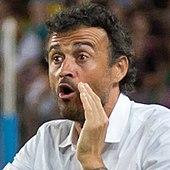As the competitive landscape of Ligue 1 continues too evolve, the pivotal role of managerial strategies and philosophies has never been more pronounced. From seasoned veterans to ambitious newcomers, each manager brings a unique approach to the game, shaping not only their teams’ performances but also the overall narrative of French football. This article delves into the tactical nuances and underlying philosophies that define the managerial styles within Ligue 1, examining how these elements influence match outcomes, player progress, and club identity. With the league attracting top talent and attention on both a national and international scale, understanding the tactical minds at the helm offers valuable insights into the future trajectory of one of Europe’s most dynamic football environments. Join us as we explore the diverse range of strategies employed by Ligue 1’s elite, shining a light on the intricate dance of tactics that defines this captivating league.
Table of Contents
- Evaluating Tactical Innovations Among Ligue 1 Managers
- Philosophical Approaches: How Managers Shape Team Identity
- Key Trends in Player Development and Managerial Styles
- Recommendations for Aspiring Coaches: Lessons from Ligue 1 Leadership
- The Conclusion
Evaluating Tactical Innovations Among Ligue 1 Managers
In the ever-evolving landscape of Ligue 1, managers are continuously reshaping their tactical approaches to gain an edge. analysis of their innovations reveals a blend of traditional principles and modern strategies that have redefined the game. A few key elements emerge as critical in understanding their tactical frameworks:
- Formational Adaptability: Manny managers have shifted away from rigid formations, prioritizing adaptability based on the opponent’s style of play.
- Positional Play: A focus on minimizing defensive gaps while maximizing possession has become prevalent, with players instructed to maintain optimal spatial relationships on the field.
- High Pressing Systems: Several clubs have adopted aggressive pressing tactics, aiming to regain possession quickly and disrupt opponents’ build-up play.
Moreover, the implementation of data analytics in training and match planning has given rise to a more scientific approach in tactical planning. By leveraging metrics, coaches can fine-tune their strategies in real-time. The table below illustrates some notable tactical philosophies employed by Ligue 1 managers:
| Manager | Tactical Style | Key Innovation |
|---|---|---|
| Christophe Galtier | Counter-Attacking | Rapid Transition Play |
| Jocelyn Gourvennec | Possession-Based | Fluid Midfield Rotation |
| Philippe Clement | Defensive Solidity | Structured Back-Line |
Philosophical Approaches: How Managers Shape Team Identity
In the dynamic landscape of Ligue 1, managers play a pivotal role in crafting the identity of their teams, influencing not just tactics but also the overall ethos that players embody on the pitch. Their philosophies extend beyond mere game strategies to encompass values and behaviors that define a team’s culture. As an example, a manager who prioritizes possession-based football not only encourages players to retain the ball but also fosters a collective mindset of patience and strategic thinking. This can create a sense of camaraderie among team members as they work together to achieve a common goal, reflecting collaboration and team unity in their play.
Moreover, the impact of a manager’s approach can be seen in the change of player roles and responsibilities. By instilling a clear vision, managers can align their squad’s talents with specific tasks that contribute to overall success. For example, coaches like Christophe Galtier emphasize defensive resilience while promoting a counter-attacking style, which leads players to embrace adaptability and discipline. The following table summarizes different managers in Ligue 1, highlighting how their unique philosophies shape team identities:
| Manager | Philosophy | Key Traits Promoted |
|---|---|---|
| Christophe Galtier | Defensive resilience & counter-attacking | adaptability, discipline |
| Jorge Sampaoli | High press & aggressive play | Intensity, commitment |
| Joaquín Caparrós | Structured gameplay & tactical discipline | Focus, strategy |
Key Trends in Player Development and Managerial Styles
In recent years, Ligue 1 has seen a burgeoning focus on developing young talent, with managers increasingly prioritizing player growth alongside immediate team success. This trend reflects a broader shift within football,emphasizing the importance of nurturing skill and intelligence on the pitch. Some key aspects shaping this evolution include:
- Data-driven Insights: coaches are leveraging advanced analytics to tailor training regimens and match strategies that cater to individual player strengths.
- Positional Play and Fluidity: Many managers advocate for a style of play that emphasizes flexibility, encouraging players to adapt to different roles as the game unfolds.
- Mentorship Relationships: A growing emphasis is placed on strong mentor-mentee dynamics, allowing younger players to learn from seasoned professionals within the squad.
As these strategies evolve, so too do managerial styles within Ligue 1. Coaches deploy various approaches based on their philosophical foundations, which can impact both team dynamics and player development. Notable styles include:
| Manager | Philosophy | Notable Tactic |
|---|---|---|
| Christophe Galtier | Defensive Resilience | Counter-Attacking |
| Julien Stéphan | Possession-Based Play | High Press |
| Bruno Génésio | Attack-Driven | Wing Play |
This diversity of tactics not only enriches the competitive landscape within the league but also fosters a fertile ground for the next generation of players to flourish under varying managerial philosophies.
Recommendations for Aspiring Coaches: Lessons from Ligue 1 Leadership
For those looking to carve out a career in coaching, observing the diverse approaches of Ligue 1 managers can provide invaluable insights. These coaches demonstrate that ther is no one-size-fits-all methodology; rather, success often stems from a combination of adaptability, vision, and strong communication skills. Here are some key takeaways:
- Embrace Tactical Flexibility: The best managers are willing to tweak their tactics based on the opponent and game situation. This adaptability can be crucial for leveraging player strengths.
- Cultivate a Strong Team Culture: Building a cohesive unit that operates on trust and mutual respect is essential. A positive environment can enhance performance on the pitch.
- Focus on Continuous learning: engaging with new strategies and understanding evolving game dynamics can give you an edge over your competition.
Additionally, analyzing the managerial styles in Ligue 1 reveals that accomplished coaches often prioritize effective communication, both on and off the field. Establishing clear objectives with your players can foster growth and improvement. A closer look at the achievements of prominent managers shows that:
| Manager | Key Philosophy | notable Achievement |
|---|---|---|
| Christophe Galtier | defensive Solidity | 2020 Ligue 1 Coach of the year |
| Jocelyn Gourvennec | Possession-based Play | Cup Success with Lille |
| Philippe Clement | Dynamic Counter-attacking | Proven Success in Belgium & France |
The Conclusion
our exploration of Ligue 1 managers has unveiled a rich tapestry of tactical ingenuity and diverse philosophies that define the league’s competitive landscape. From the meticulous methodologies of established stalwarts to the innovative approaches of emerging talents, these coaches are not only shaping their teams’ destinies but also influencing the evolution of football in France and beyond. As we continue to witness the dynamic shifts within Ligue 1,the strategic decisions made on the touchlines will undoubtedly serve as a focal point for analysts,fans,and stakeholders alike. The insights gleaned from these managerial philosophies provide a deeper understanding of the tactical nuances that characterize one of Europe’s most intriguing top-flight leagues. as we await the unfolding drama of the seasons to come,one thing is certain: the realm of Ligue 1 will continue to inspire and challenge our perceptions of the beautiful game.





